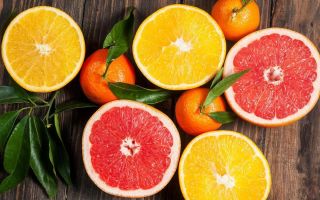Content
Flavonoids are pigments that give plants bright colors. In terms of chemical composition and structure, substances are similar to hormones. The effect of flavonoids on the body cannot be overemphasized. They regulate the action of enzymes, improving the digestion process and exhibiting antioxidant, antitumor properties.
What are flavonoids for?
Since ancient times, it has been known that fruits and vegetables have a beneficial effect on the functioning of the body. The benefits are due to the content of special components. They are called "flavonoids". This is a group of substances that are found in herbs, berries, vegetables and fruits. The use in pharmacology and folk medicine is due to the effect on the body's enzymes.
Connections for the body are necessary in the following cases:
- weakness and fatigue;
- lingering stress;
- trauma accompanied by bleeding;
- increased fragility of capillaries;
- increased pressure;
- circulatory disorders;
- inflammatory processes of the intestines and stomach.
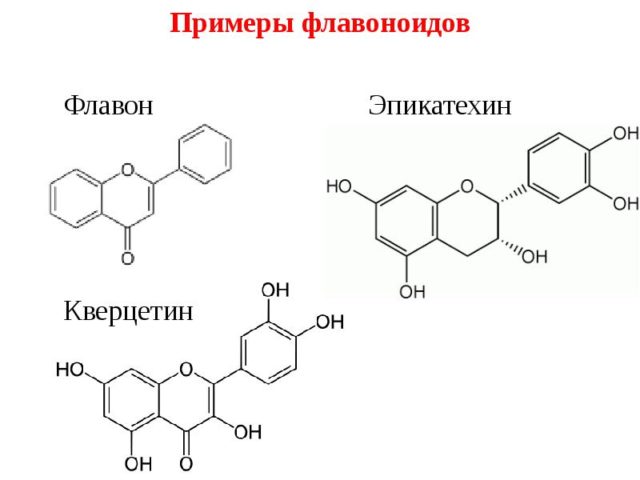
Connections are:
- lipophilic;
- water-soluble.
The following component classes are named:
- catechins;
- chalcones;
- leukoanthocyanidins;
- dihydrochalcones;
- aurons;
- flavonols;
- anthocyanins;
- isoflavones.
The effect of flavonoids on the human body
The compounds have a beneficial effect on the body. The following properties of flavonoids are distinguished:
- venotonic;
- decongestant and anti-inflammatory;
- vasodilator;
- membrane stabilizing;
- antiatherosclerotic;
- antiallergic;
- cardioprotective;
- antihypertensive;
- immunomodulatory and antioxidant;
- detoxifying;
- anticarcinogenic.
The effect of flavonoids on a woman's body
Adequate functioning of systems, preservation of youth depends on the level of sex hormones. The main female steroid is estrogen, the concentration of which gradually decreases after age 45. This is due to the extinction of reproductive function.
A decrease in estrogen levels is manifested by a change in all body systems.
The following symptoms appear:
- emotional lability;
- pressure surges;
- increased sweating, hot flashes;
- headaches, dizziness;
- decrease in bone density, skin elasticity;
- acceleration of the heartbeat;
- dryness in the vagina.
Flavonoids have estrogen-like effects. The inclusion in the composition of food rich in useful components allows you to prolong youth and eliminate the characteristic signs of hormone deficiency. Among the most important substances for menopause for women is hesperidin, which contains citrus fruits.The compound also fights viruses, edema, allergies.
The effect of flavonoids on the male body
Substances are essential to maintain health. The main functions of flavonoids are to normalize the work of the cardiovascular, immune, and endocrine systems. As a result of scientific research, the compounds have been found to reduce the risk of prostate cancer in men. Stabilization of the hormonal background affects the increase in potency.
The benefits and harms of flavonoids
Usually the compounds are supplemented by ascorbic acid. The components reinforce each other's impact. The benefits are due to the physical properties of the flavonoids:
- antioxidant;
- antiviral;
- anti-inflammatory.
The use of foods containing substances contributes to:
- prevention of bleeding;
- preventing miscarriages;
- therapy of menstrual irregularities;
- protection against malignant tumors, heart disease;
- lowering cholesterol levels;
- improving the functioning of the liver, organs of vision;
- reduction of pain syndrome;
- strengthening the vascular walls.
The negative effect of substances is observed in the following cases:
- excess dosage, which interferes with the absorption of vitamins;
- inability to use in case of blood clotting disorders.
Excessive intake of flavonoids increases the risk of side effects.
What foods have the most flavonoids
The substances have a beneficial effect on the body. The following flavonoid-rich foods are called:
- Blueberry... The berry contains anthocyanin, which strengthens the walls of blood vessels. The lack of this component is manifested by the appearance of bruises with a slight effect on the skin. The substance is useful for the vessels of the eyes and brain. The use of blueberries in sufficient quantities helps to improve vision and increase efficiency, and prevent strokes.
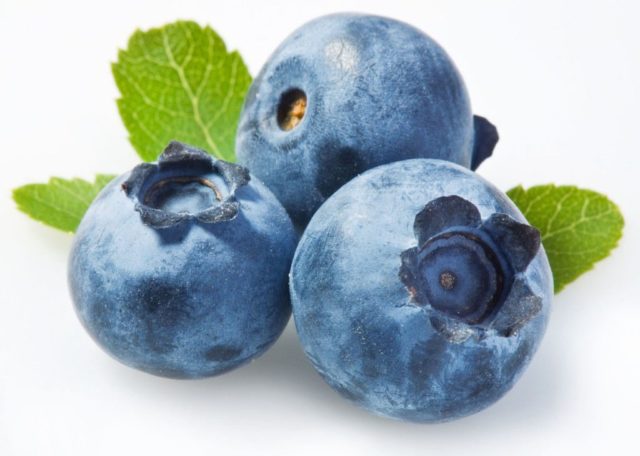 Berries can be used both fresh and frozen
Berries can be used both fresh and frozen - Green tea... The drink contains polyphenol, which strengthens blood vessels and heart. Drinking at least 4 cups of green tea per day can significantly reduce your risk of stroke and heart attack. Polyphenol helps to eliminate inflammatory processes in the body, such as arthritis and stomatitis. The drink can be used to rinse the throat, gums.
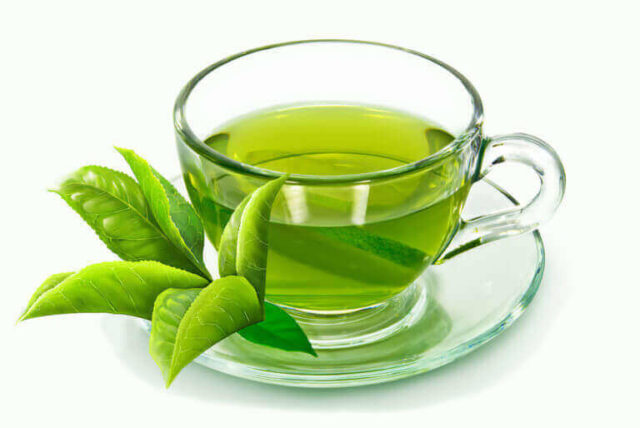 Green tea contains tannins and catechins to strengthen blood vessels, cleanse the liver, eliminate cancer cells, eliminate inflammation
Green tea contains tannins and catechins to strengthen blood vessels, cleanse the liver, eliminate cancer cells, eliminate inflammation - Onion (red). The vegetable is rich in quercetin. The substance is beneficial for inflammation, allergic reactions. Quercetin prevents the formation of atherosclerotic plaques. The flavonoid is also found in tomatoes, apples, bell peppers, broccoli, and beans.
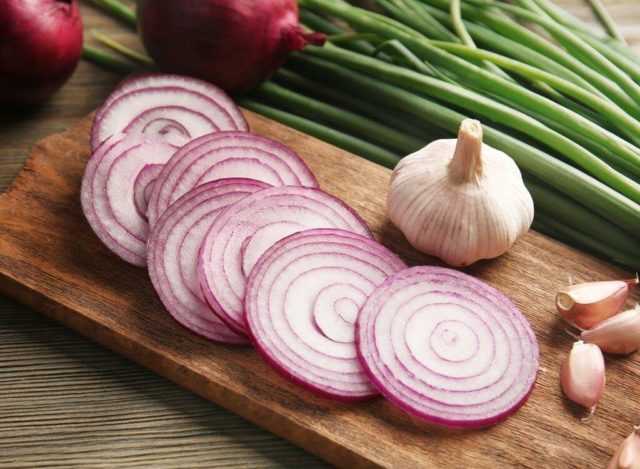 Onions have powerful anti-cancer effects due to antioxidant properties
Onions have powerful anti-cancer effects due to antioxidant properties - Citrus... Fruits include rutin or vitamin P. Significant concentrations of the flavonoid can be found in the white septa and rind. It eliminates increased fragility of blood vessels, removes toxins and heavy metals from the body. The use of the substance is to relieve pain, allergic reactions. Rutin also contain apricots, tomatoes, raspberries, black currants, paprika, herbs, green salad, buckwheat, coffee, dark chocolate.
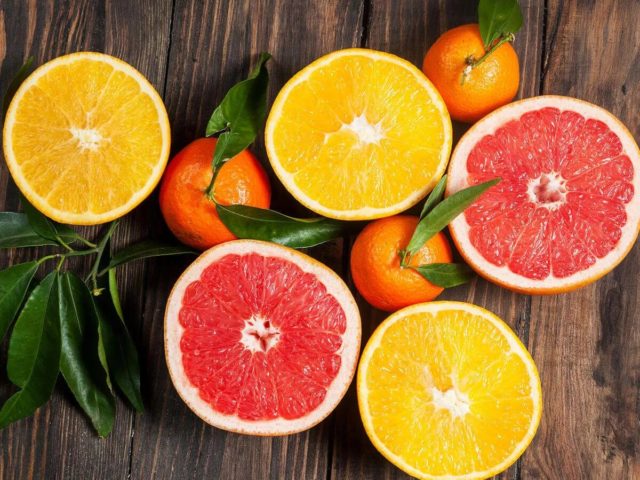 Citrus fruits can be eaten with the peel
Citrus fruits can be eaten with the peel - Dwalnuts... The product has anti-cancer properties due to the presence of ellagic acid. The compound neutralizes the action of carcinogens such as tobacco smoke.It can also be found in berries such as strawberries, blackberries, and cranberries.
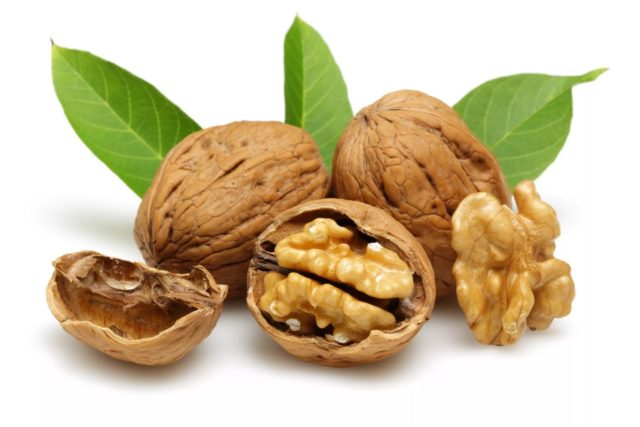 Walnuts have anti-cancer effects
Walnuts have anti-cancer effects - Cabbage... The vegetable is known for its kaempferol content, which cleanses the liver and strengthens blood vessels. These compounds include: beets, radishes, broccoli.
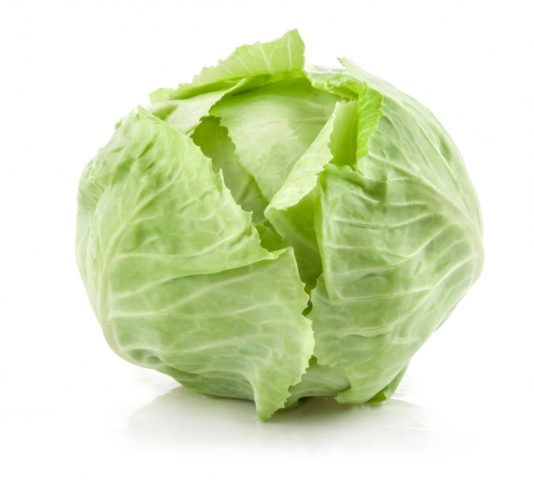 Natural flavonoid in cabbage prevents cancer growth
Natural flavonoid in cabbage prevents cancer growth
Contraindications to foods containing flavonoids
The effect of substances on the body has not been studied enough. Relative contraindications include:
- pregnancy and lactation;
- poor blood clotting;
- individual hypersensitivity reactions.
Flavonoid content table
The mix includes plant sources. The pharmacological action of flavonoids is manifested in improving the functioning of various body systems.
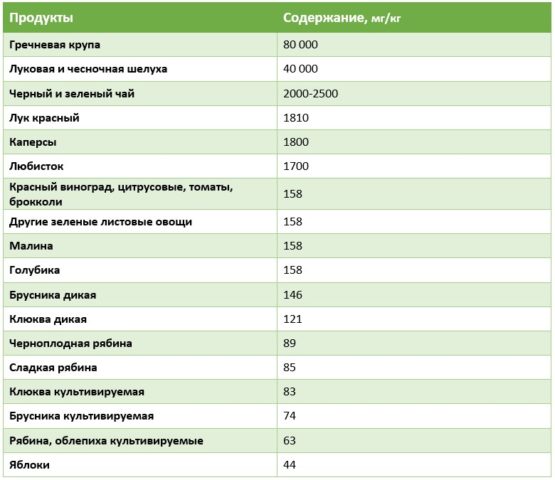
Rules for the use of foods with flavonoids
The compounds are represented exclusively by plant foods, which contain a whole range of useful vitamins and minerals. The pharmacological action of flavonoids determines their inclusion in dietary supplements. However, consumption as a product is preferred.
Experts do not recommend exceeding the permissible amount of compounds entering the body. This is associated with the risk of side effects, negative impact on the absorption of other elements.
Useful Tips
The components are not formed in the body. They come exclusively with food or as part of dietary supplements. The optimal source of substances is natural products. To preserve useful components, heat treatment must be excluded.
Conclusion
The effect of flavonoids on the body is positive. The number of compounds contained in plant food reaches several thousand. It is possible to use substances both with food and in the composition of dietary supplements. Regular intake of flavonoids in the body improves the functioning of almost all systems.

